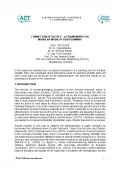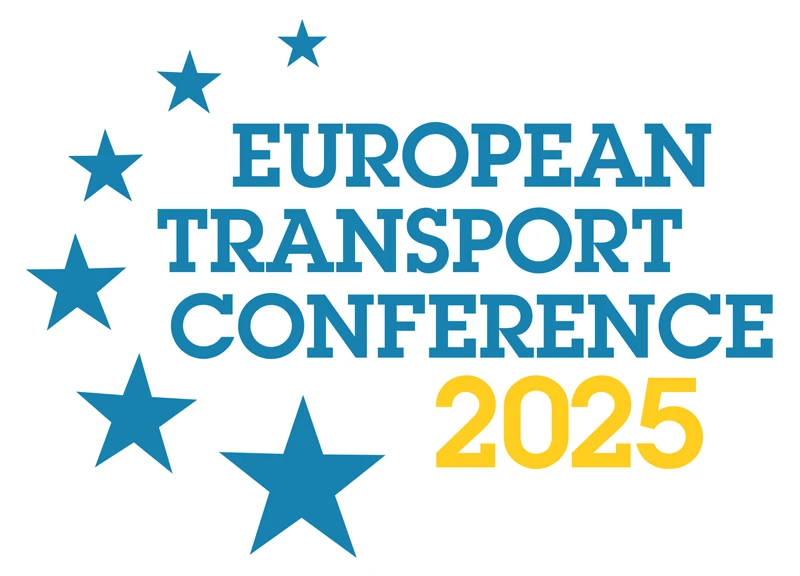-
Past ETC Papers

Browse, search and view papers from the past AET Conferences.
-
Members' Area

AET promotes networking and exchange of ideas, information and opportunities amongst members.
Conference Papers 2023
Milan, Italy
ETC Conference Papers 2023
Connection is the key – a framework for modular mobility hub planning
Seminar
Day 3 (8 Sep 2023), Session 9, Design for Multimodal Transport, 11:30 - 13:00
Status
Accepted, documents submitted
Submitted by / Abstract owner
Tim Schulz
Authors
Tim Schulz (tim.schulz@ovgu.de)
Olga Biletska (olga.biletska@ovgu.de)
Richard Reider (richard.reider@ovgu.de)
Tom Assmann (tom.assmann@ovgu.de)
Hartmut Zadek (zadek@ovgu.de)
Short abstract
In this paper we develop a conceptual framework for the implementation of a planning tool for smart, modular mobility hubs. We show preliminary results from our pilot tool, which is based on this framework.
Abstract
Despite many efforts to reduce emissions in the transport sector, the contribution to the target of a net-zero economy was marginal. A central problem is the high number of trips traveled by private motorized transport. The share of trips covered by motorized individual transport is especially high in rural areas. The inaccessibility of public transport stops and insufficient frequency of traffic schedules result in low flexibility for potential users. Therefore, public transport is commonly not an adequate alternative to private transport in rural areas and measures to support alternative modes of transport are necessary.
One way to address this problem is the use of mobility hubs. Mobility hubs consolidate incentives for commuting by public transport and serve as point of access to various modes of transport, allowing for inter-modality. Nevertheless, mobility hubs in rural areas have not yet been rolled out comprehensively. One reason for this is that mobility hub planning is currently done on a case-by-case basis, resulting in high costs for planners and preventing a large-scale roll-out. To support planners, it therefore seems beneficial to use modular designs of mobility hubs, which offer a transferable and flexible solution. At the same time, mobility hub usage depends on the provision of reliable real-time data in order to encourage potential users to switch to the modes of transport on offer. For users, it is important that the modes of transport and the corresponding data are linked with each other, thereby the gap in planning reliability and flexibility, compared to private motorized transport can be diminished.
Therefore, we aim for an approach to mobility hub implementation allowing for smart information integration as well as demand driven multi-modal configuration and extension. Thus, we have developed various modules in an interdisciplinary team, which enable a flexible and swift construction of smart mobility hubs for a comprehensive roll-out. For instance, the flexibility of users is increased through smart components (sensors) for capacity monitoring and the transfer of this information in real time. However, planning modular mobility hubs in line with demand is a challenging task. Present approaches for mobility hub planning require geospatial and sociodemographical data regarding the demarcated area in order to derive adequate hub locations. Since structure, availability and quality of this data from local experts and authorities is very heterogeneous, the use of an open-data approach seems appropriate. This allows for a more homogeneous data access and thus, enables transferability of the planning approach.
Consequently, we want to present a conceptual framework of an open-data driven planning tool supporting smart, modular mobility hub localization, configuration and dimensioning for rural areas.
In a first step, we analyze existing approaches for mobility hub planning as part of a literature review. For this purpose, we determine the necessary data for existing mobility hub planning approaches. From this we derive two approaches, with unequal data availability, that appear appropriate for the demand-based localization and configuration of mobility hubs. We describe the application limits of these approaches and classify their possible results in relation to the state of the art. Subsequently we show preliminary results from the implementation of the approaches in a pilot application tool.
The conceptual framework we will present in our paper is developed to create a planning tool for smart, modular mobility hubs in rural areas. In order to allow transferability, we compare two open data-based approaches for the subsequent tool implementation. The research area for our pilot project is located in the rural district Mansfeld-Südharz (Germany). The added value of our research project “Smart mobility hubs in rural areas (SMüR)” is a planning tool for the localization, dimensioning and configuration recommendation of smart, modular mobility hubs, which is applied in a pilot test, allowing a scalable roll-out in rural areas, which can be used in further research and implementation.
Programme committee
Intelligent Mobility - Management and Operation
Topic
Sustainable travel – shaping tourism and daily travel in the face of climate change and energy transition
Documents:





Association For
European Transport
Forester House
Doctors Lane
Henley-in-Arden
Warwickshire, UK
B95 5AW
+44 (0) 15 64 793552
VAT number: 710 1866 64
Conference Supporters & Endorsers




Legal Entity
The Association for European Transport is registered as an Association ('vereniging') with the Chamber of Commerce for Haaglanden in The Netherlands under company number 27170096.
Built on Zenario




